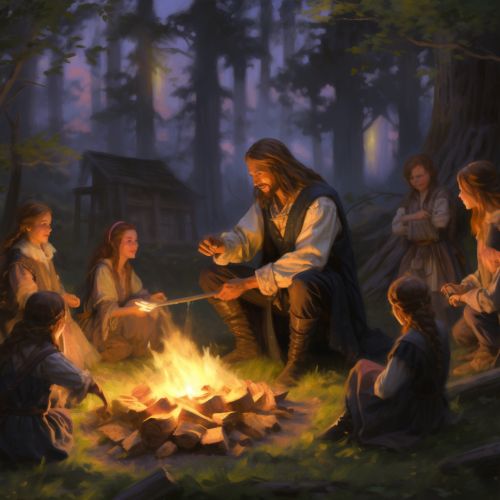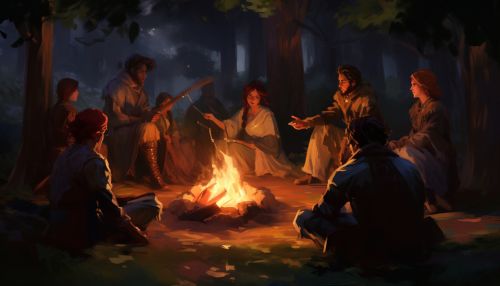Legend
Origins and Etymology
The term "legend" originates from the Latin word "legenda", which means "things to be read". In its earliest use, a legend was a story that was written to be read aloud, often as part of a religious service. This is why many of the earliest legends are religious in nature, such as the legends of saints in the Catholic Church read more.
Characteristics of Legends
Legends are a form of traditional narrative, often passed down orally from generation to generation. They are typically set in the real world and feature human characters, but they often involve extraordinary or supernatural events. Legends are often used to explain natural phenomena, historical events, or social customs. They can also serve as moral or cautionary tales.


Legends differ from other forms of traditional narrative, such as myths and folktales, in several key ways. While myths are often set in a time before recorded history and involve gods or other supernatural beings, legends are typically set in a more recent past and feature human characters. Folktales, on the other hand, are typically fictional and do not purport to be true.
Types of Legends
There are many different types of legends, including urban legends, supernatural legends, and historical legends.
Urban legends read more are contemporary stories that are often told as if they are true. They often involve elements of horror or mystery and are typically used to express societal fears or concerns.
Supernatural legends involve elements of the supernatural, such as ghosts, witches, or mythical creatures. These legends often serve to explain mysterious or unexplained phenomena.
Historical legends are based on historical events or figures, but they often incorporate elements of fiction or exaggeration. These legends can serve to glorify a historical figure or event, or they can be used to teach a moral lesson.
Legends in Different Cultures
Every culture has its own unique set of legends, which often reflect the values, beliefs, and experiences of that culture. For example, many Native American legends read more involve animals and nature, reflecting the importance of the natural world in Native American cultures.
In contrast, many European legends, such as those of King Arthur and Robin Hood, involve heroic figures and reflect values such as bravery, honor, and justice.
Asian legends, such as those of the Monkey King in Chinese folklore, often involve elements of the supernatural and reflect beliefs about the spirit world and the afterlife.
The Role of Legends in Society
Legends play an important role in society. They help to preserve cultural traditions, teach moral lessons, and provide a sense of identity and community. Legends can also serve as a form of entertainment, providing thrilling and engaging stories for listeners or readers.
In addition, legends can serve as a form of social control, reinforcing societal norms and values. For example, a legend about a person who is punished for breaking a social taboo can serve as a warning to others not to engage in similar behavior.
Legends in Modern Times
In modern times, legends continue to be a part of our cultural fabric. Urban legends, in particular, have become a popular form of contemporary folklore, often spread via the internet and social media.
In addition, many legends have been adapted into books, movies, and other forms of media, demonstrating their enduring appeal. For example, the legends of King Arthur have been the basis for numerous books and films, and urban legends often serve as the inspiration for horror movies.
